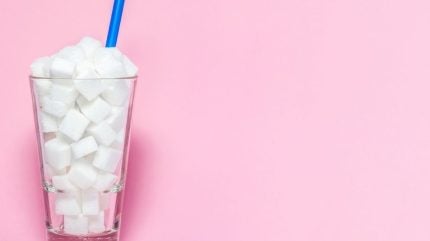
Slovakia’s government is readying plans to introduce a tax on sugary and sweetened soft drinks next year.
A draft bill is to be put before the Slovak parliament, with plans to levy the tax in 2025.
Under the proposals, the rate of tax applied would depend on the type of beverage.
Peter Požgay, CEO of the Slovakia-based nutritional supplement company Body World, told Just Drinks “the situation is still evolving”.
“The initial draft of the law was looking to tax all drinks and instant powdered drink preparations containing either sugar or a sweetener,” Požgay said.
“The tax was set to be at €0.20 ($0.00) or €0.30 per litre, […] depending upon caffeine content. For liquid concentrates, like syrups, the tax was [going to be] €1.05 per litre and, for powdered drink formulas, the tax was set at €4.30 per kilogram.”

US Tariffs are shifting - will you react or anticipate?
Don’t let policy changes catch you off guard. Stay proactive with real-time data and expert analysis.
By GlobalDataThe original “value added tax” which is about 20%, would still be applicable besides the sugar levy, he added.
The country’s Ministry of Finance proposed in a statement earlier this week (13 May) that “sweetened milk, yogurt and plant-based drinks should not be subject to the new tax on sweetened soft drinks”.
The ministry’s proposal also excludes dietary supplements, such as over-the-counter liquid vitamin drink and protein drinks with added sugar or sweeteners.
The Slovakian government added it was ready to consult further on the legislation, though the Ministry of Finance also warned political parties not to “misuse” the topic for political gain.
Požgay claimed the proposal has led to a “very negative sentiment and reactions from both the general public, as well as trade and professional organisations, since [it] would also affect healthy drinks and foods, such as plant-based milk replacements, yogurt drinks, milk drinks, sports nutrition (such as protein powders), and the claimed objective of this law to achieve better health for the public turned out just to be a phrase”.
He added: “After several reports, the initial draft was changed yesterday (13 May) to leave out the taxation of these healthy drinks and food. However, we need to see the actual phrasing, as in our case of sports nutrition, the categorisation is tricky, with products labelled either as a regular food preparation or a food supplement. We will see when the law is presented in the parliament.”
Slovak soft drinks trade body the AVNM told Just Drinks has criticised the proposal for singling out soft drinks.
“Discriminatory taxation of a certain selected category of food will not reduce obesity rates. The research carried out so far clearly shows that taxation of soft drinks only leads to the substitution and consumption of non-taxed products with similar nutritional properties, burdens low-income households in particular and supports shopping tourism,” the trade body said, without citing the source of the data.
Last month, the Dutch government laid out five scenarios for revising its taxation of sugar in non-alcoholic beverages, which could include soy-based drinks, water and dairy.
Since 1993, a flat rate of €26.13 ($27.96) per 100 litres has applied to all non-alcoholic drinks, regardless of sugar content.
The Dutch government is now looking to introduce an additional tax on sugar content. Five possible scenarios on how this could be introduced have been drafted, with the stated goal of “promoting health” via healthier soft-drink options.
The first and simplest scenario is to tax all non-alcoholic drinks on sugar content levels, including dairy, soy-based drinks and mineral waters.
Last month, Estonia’s government postponed plans to introduce a tax on sugary and sweetened drinks to 2026.
The bill to implement a levy on sugary drinks and those that contain artificial sweeteners will now go before Riigikogu, Estonia’s parliament.
Initially, the country’s government had planned to introduce the tax next year.



